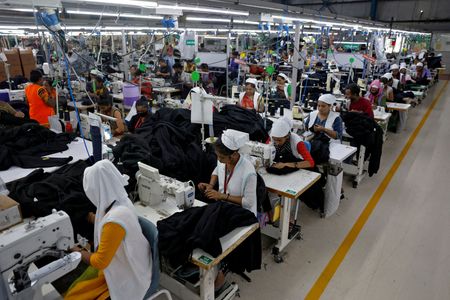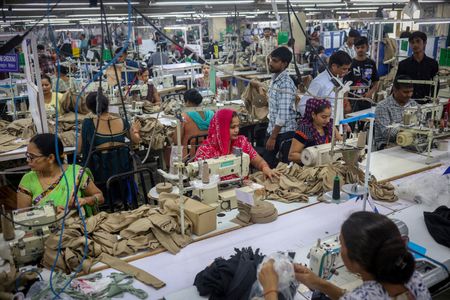By Sarita Chaganti Singh and Manoj Kumar
MUMBAI (Reuters) -Ten large Indian trade unions condemned the government’s rollout on Friday of new labour codes, the biggest such overhaul in decades, as a “deceptive fraud” against workers.
The unions, aligned with parties opposing Prime Minister Narendra Modi, demanded in a statement late on Friday that the laws be withdrawn ahead of nationwide protests they plan to hold on Wednesday.
Modi’s government implemented the four labour codes, approved by parliament five years ago, as it seeks to simplify work rules, some dating to British colonial rule, and liberalise conditions for investment. It says the changes improve worker protections.
While the new rules offer social security and minimum-wage benefits, they also allow companies to hire and fire workers more easily.
Unions have strongly opposed the changes, organising multiple nationwide protests over the past five years.
The Labour Ministry did not immediately respond on Saturday to a Reuters request for comment on the union demands. The government has held over a dozen consultations with unions since June 2024, an internal ministry document on the labour codes shows.
The rules allow longer factory shifts and night work for women, while raising the threshold for firms that need prior approval for layoffs to 300 workers from 100, giving companies greater flexibility in workforce management.
Businesses have long criticised India’s work rules as a drag on manufacturing, which contributes less than a fifth to the country’s nearly $4 trillion economy.
But the Association of Indian Entrepreneurs expressed concern that the new rules would significantly increase operating costs for small and midsize enterprises and disrupt business continuity across key sectors. It asked the government for transitional support and flexible implementation mechanisms.
Not all unions oppose the overhaul. The right-wing Bharatiya Majdoor Sangh, aligned with Modi’s party, called on states to implement them after consultations on some of the codes.
Indian states are expected to craft rules aligning with the new federal codes covering wages, industrial relations, social security and occupational safety.
(Reporting by Sarita Chaganti Singh and Manoj Kumar, writing by Dhwani Pandya)















